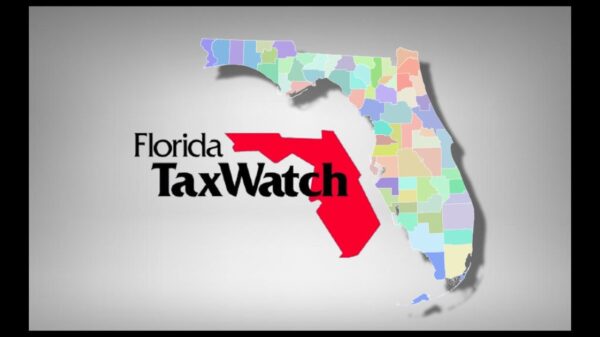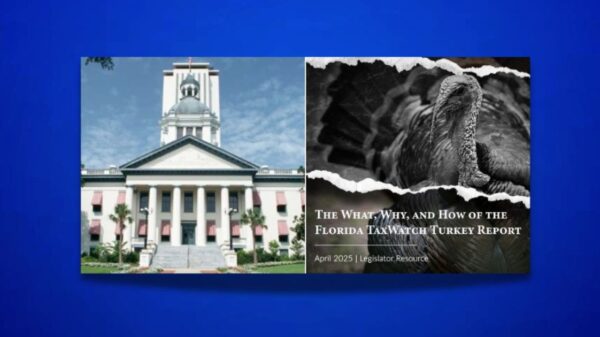On Tuesday, Florida TaxWatch (FTW) sent three briefings – “The What, Why, and How of the Florida TaxWatch Budget Turkey Watch Report,” “Sprinkle Lists Diminish Confidence in the Budget Process and Should be Discontinued” and a “Primer on Salary Rate” – to all members of the Florida Legislature and their staff.
Together, these briefings are intended to serve as primers on FTW’s annual Budget Turkey process, while cautioning legislators against adding new projects through supplemental funding lists, or “sprinkle lists,” during the upcoming budget conference. In anticipation of these negotiations, FTW also offers an overview of a “salary rate,” which is the amount the Executive Office of the Governor authorizes state agencies for each budget entity that includes a salary appropriation.
Florida TaxWatch President and CEO Dominic Calabro said, “Florida TaxWatch is extremely honored to serve as the ‘eyes and ears’ of taxpayers – it’s who we are, the foundation upon which we were built in 1979, and it’s what we do every single day. We’re always watching and listening to see what’s going on in and around the state capitol complex to ensure Floridians’ hard-earned tax dollars are appropriated in an open, transparent, and accountable manner and used in a way that will have a positive statewide impact.
“With these comprehensive briefings, we hope to adequately explain the importance of transparency and accountability in the state budget process, equipping both freshman and experienced legislators with the information and resources they need to end the 2023 Legislative Session strong and avoid having their projects land on our annual Budget Turkey Watch Report, which we will be releasing in the coming months,” he continued.
“We’re also taking this opportunity to emphasize how sprinkle lists, which each chamber now routinely presents at the end of the budget conference for acceptance by the other chamber, diminish confidence in the budget process and should therefore be discontinued,” Calabro added.“And we offer a reminder that a salary rate is a budgeting tool used by the legislature to better manage and control state agency positions and salaries, and agencies may not exceed their approved annual salary rate for a given fiscal year.
“As we enter the latter half of the legislative session, with budget negotiations ongoing, rest assured that Florida TaxWatch will remain vigilant on behalf of all tax-paying Floridians,” he said in conclusion.
FTW began producing an annual Budget Turkey Watch Report in 1983 to promote oversight and integrity in the state’s budget process. The report identifies Budget Turkeys, or appropriations – usually local member projects – that circumvent proper review, transparency, and accountability standards, and it is presented to the governor for veto considerations. “The What, Why, and How of the Florida TaxWatch Budget Turkey Watch Report” briefing further explains what a Budget Turkey is, including the type of projects that frequently receive this designation and its clearly defined criteria.
Regarding supplemental funding lists, the “Sprinkle Lists Diminish Confidence in the Budget Process and Should be Discontinued” briefing notes that each chambers’ sprinkle list is worth more than an average of $120 million – or a combined average of $285 million – annually over the last ten years. These lists can include additional funding for projects that are already funded in the budget, provide funding for new appropriation projects or other programs, or add back funding for projects that budget conferees had previously agreed to remove. Sprinkle lists are also developed and agreed to in private, without any public discussion or debate, which is why FTW asserts the practice should be discontinued – by nature, it is not in the best interest of taxpayers.
Finally, FTW defines what a salary rate is in the “Primer on Salary Rate” briefing, explaining that it is based upon state agencies’ actual salaries and is consistent with the General Appropriations Act. According to the briefing, an agency may exceed its approved salary rate by as much as five percent at any point during the fiscal year; however, by the end of the fiscal year (June 30), the agency must have taken action to reduce its salary rate so that the rate is within the agency’s approved limit.





















